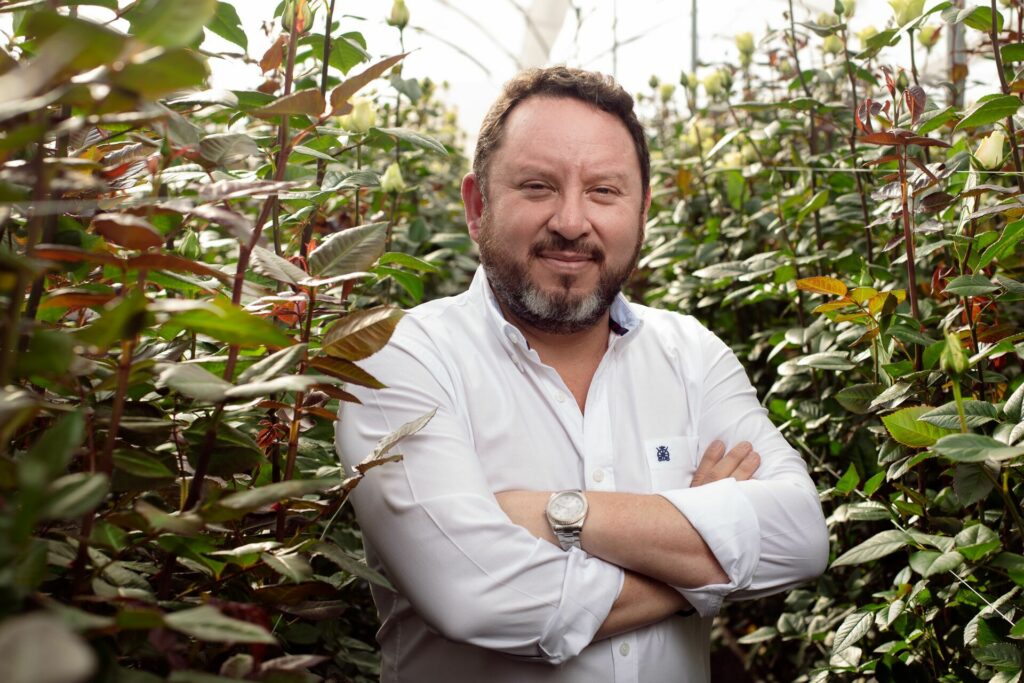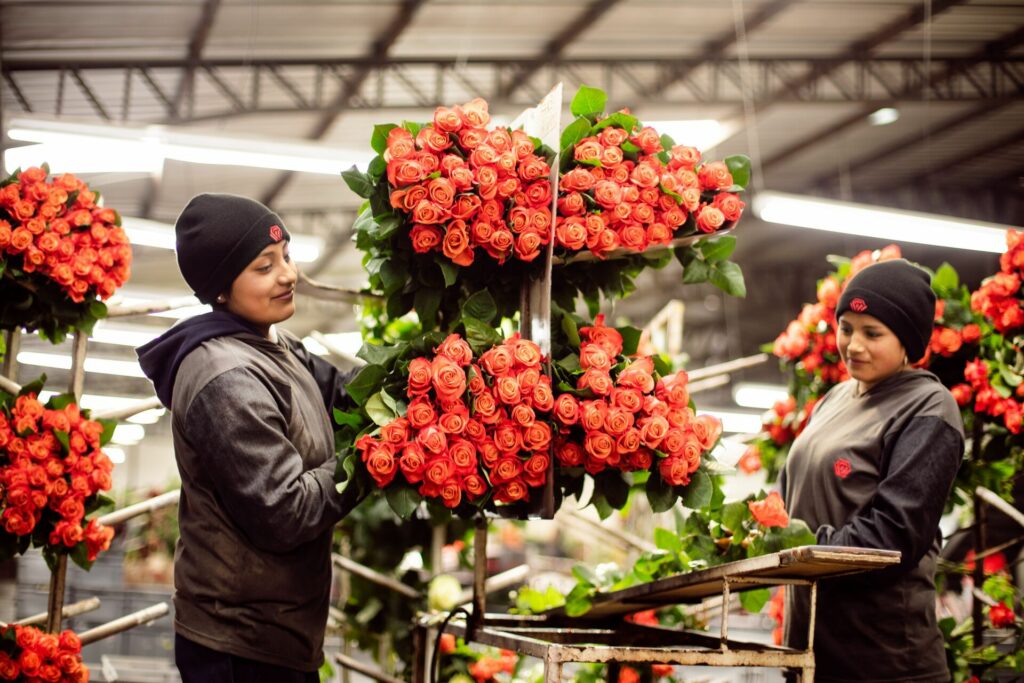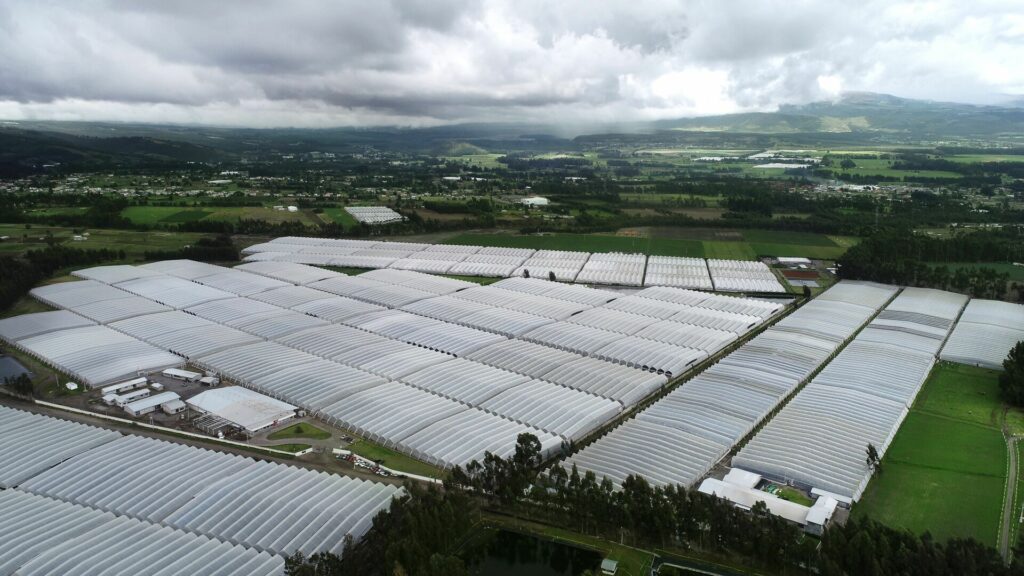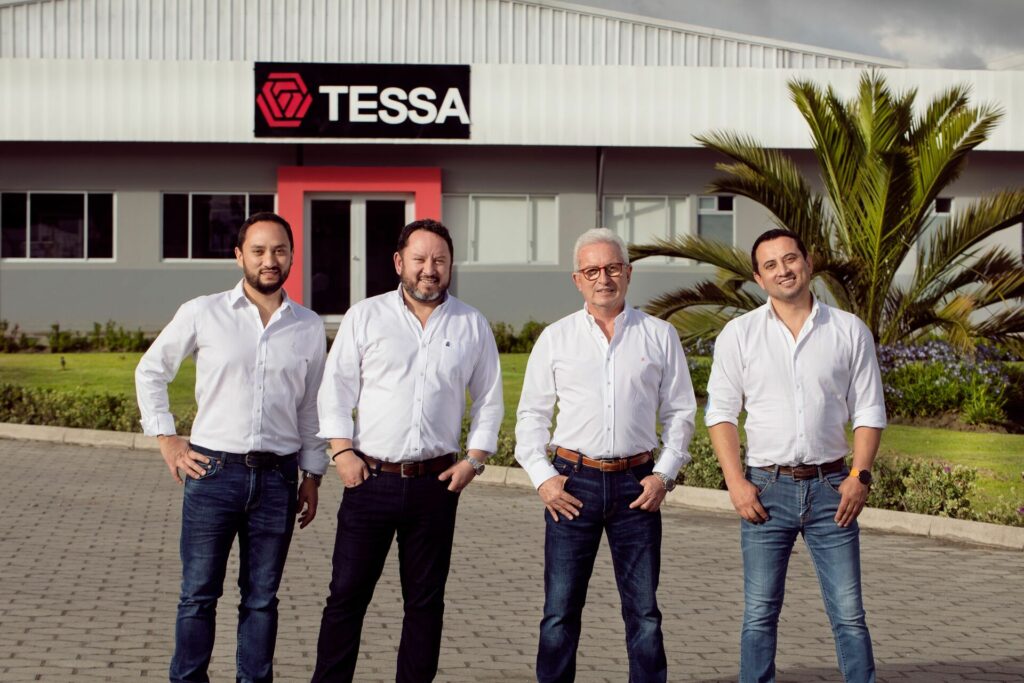Ecuadorean Tessa Corp grows roses of high quality at high altitude, as they like to say. Tessa is a big player and their numbers are looking good: their acreage is still expanding, and their turnover steadily increasing. Quality alone is not enough, though; market knowledge and a consistent pricing policy are important too.
Common complaints within the floricultural industry in Ecuador regard the low market prices, expensive transport and the inflexibility of the labour laws. But at one of the largest nurseries in Ecuador, they say that despite all that, they are still managing to be sufficiently competitive. Tessa Corporation focuses on the opportunities emphasises vice president Carlos Nevada when we meet him at one of their five locations, close to Cotopaxi volcano. The corporation consists of Tessa nurseries, Ecuanros, Fiorella and Dali.
With its 102 hectares, 1,200 employees, more than 100 varieties and an increasing turnover of 75 million flowers in 2018, Tessa belongs to the Andean country’s top 5 nurseries. Around half of their rose production is shipped to Russia. The biggest markets after that are Europe and the USA. Carlos manages the company with his brothers Juan (production) and Andres (administration). Father Carlos senior founded the company in 1997, starting with four hectares.

What is the secret of this company? Nevada speaks on behalf of the business, when he shares his outspoken vision. “We are very focused on the market. I mean market knowledge. Who are your customers, what’s the right price? And we combine this with high-quality products.”
Market knowledge
Nevada elaborates: “When companies approach the market, many don’t distinguish between the various groups of buyers: importers, wholesalers, florists. When we started out, we were the same. We sold to intermediaries, brokers, who would sell our products on to importers or wholesalers, who would sell on to retailers etc. But you can change this by streamlining the logistics. Nowadays, we sell directly to wholesalers, for example. But we’re still doing business with our distributors-importers, too. You won’t find this kind of structure in smaller firms. They sell their products at the same price to all parties.”
Tessa’s strategy requires a lot of travelling, to maintain contacts. “That’s also how it started. When you go to places, you can find out which parties are important and interesting, who’s big or small. That experience really changed our ambition.”

Many Ecuadorean nurseries were selling most of their roses to Russia and they got hurt badly a few years ago. The rouble crisis had a huge impact on companies with a lot of business in Russia. Nevada explains that it didn’t affect Tessa too much. It was definitely no reason for them to change direction, or to stop and wait for the Russian economy to recover. “It’s true that in general, Russian customers can bring a lot of uncertainty. But our experience is positive. Tessa Corp’s sales to the Russian market have always been quite stable.”
Nevada spends a few months per year abroad. “To explore new markets and maintain existing contacts. We have a lot of regular customers. Another part of our vision is that we stick to our prices. We want to be competitive with our pricing, but we’re not trying to be the cheapest. We supply high-quality roses for a good price. Our production cycle allows this. There aren’t too many fluctuations, so we can guarantee a steady supply. We don’t suddenly have too much or too little.”
No compromise on price
The vice president says that the fact that Tessa doesn’t compromise on price is based on their own strength, confidence in the product, as well as on how much the customer is willing to pay. “When competition is high, it isn’t unusual for companies to accept a lower price to ensure they sell their flowers. We can stick to our prices, because we invest heavily in service and quality, so that customers keep coming back.”

Not surprisingly, Tessa’s sales department plays an important role. Word has it that not all sales departments in Ecuador work in the same way. Apparently, they don’t do much more than just order processing sometimes. Nevada: “Yes, that’s right. But not with us. We set high standards for our sales staff. Being able to speak English is not enough. They need to have several foreign languages and be able to work with modern communication technology, from phone to web support and social media. Are those employees difficult to find? Yes, but that applies to all middle to higher level staff. Technical staff, for example, is also scarce.”
Some of the bottlenecks commonly mentioned by Ecuadorian flower companies are labour legislation, relatively expensive transport and all kinds of taxes. “It is what it is”, continues Nevada. “That’s not the customer’s problem. Things could always be better. Rose imports to the USA are still subject to a 7% import fee, for example. But there have also been improvements. Like the greater flexibility that cargo agents are offering now. That’s been a real game changer. It means that we can transport smaller quantities without seeing a huge cost increase. And, even if policies haven’t changed much, inspections are smoother, while the rules are still adhered to.”
More markets to explore
During a tour of the nursery, which is situated at an altitude of around 3,000 metres, we get to see some of the roses that Nevada was talking about. With their lush foliage and 70-cm length, they belong in the top segment. An advanced, computer-controlled irrigation system with separate channels is set up in a large, central engine room.

The beautiful, long roses are custom packaged at the nursery’s processing department. Nevada explains: “The volumes of the various packaging options are all similar, so the packages are roughly the same weight. They’re equipped with a bar code before they leave the premises.” Back in his office, the vice president says there’s still room for further growth. “We’re going to increase our production acreage. There are still more markets for high-quality Ecuadorian roses. There are parts of the world that we haven’t explored yet. Asia and Australia, for example, might offer opportunities.”

Dit artikel verder lezen?
Nog geen abonnee?
Uw voordelen
- Profiteer van onze aanbiedingen en ervaar Tuin en Landschap
- Tweewekelijks ons digitale magazine in je e-mail en/of
- Ontvang elke twee weken het tijdschrift Tuin en Landschap




